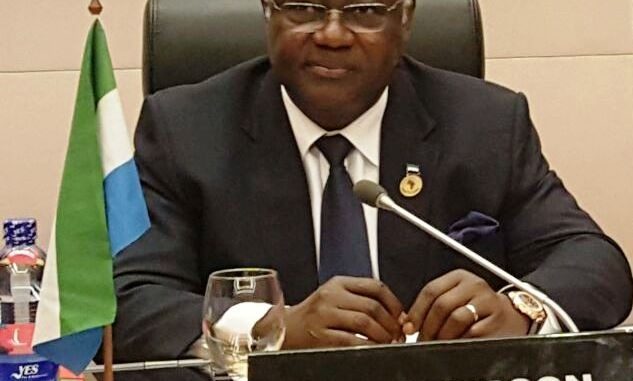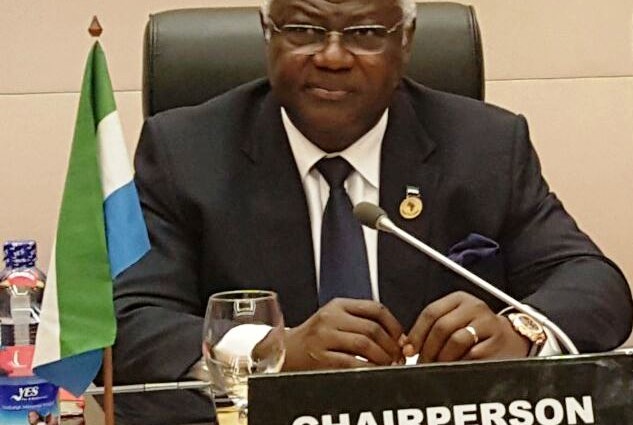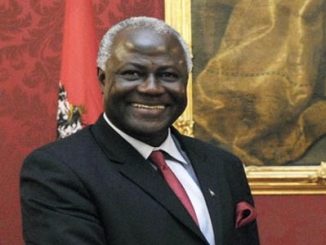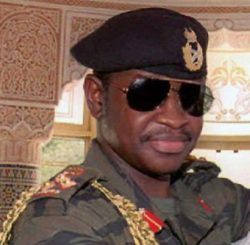
President Koroma, an African Voice at the Global Stage
John Baimba Sesay-China
With my close to five years in the diplomatic service, having had the opportunity of serving as aide to a number of Ambassadors at high-level meetings, I have had the privilege of knowing and having a feel of how strong our nation is held in high esteem added to commendations for the progress we continue to make in our growth efforts.
From our collective efforts to putting behind us a decade long civil war, to our post war rebuilding drive, fixing the post war challenges, contributing to regional peace keeping and peace building efforts, and today serving as a voice for the continent in the advocacy of the global body- the United Nations, now serving as a platform through which Africa’s voice could be heard, and her concerns profusely articulated, we proudly would say, we indeed have come a long way.
Coming to office in 2007, President Ernest Bai Koroma had not only had a desire of simultaneously maintaining macro-economic strength in relation to the economy, he had also ensured we moved towards ensuring “increase revenues, improve international confidence in the management of the economy, promote investment and re-align government expenditure in favour of infrastructural development”- (President Koroma, State Opening of Parliament, 2010).
In fact, the ‘Change’ trajectory, he had said in a 2009 address at a Trade and Investment Forum, was to “put our country on the path from aid dependency to a dynamic, self-sustaining economy. It focuses on investment and reform in the key strategic sectors which are most critical to unlocking the full productive potential of our economy.” The country had not only moved towards maintaining macroeconomic stability, it also ensured a leap in investment in public services, infrastructure, amongst others.
We have been hit by numerous challenges, not least the outbreak of a debilitating and deadly virus- Ebola. It didn’t only affect our potential for sustained economic growth, but also had an adverse effect on our development path. But that never deterred our zest or quest for a better tomorrow. The country came together, mobilized all it could, with the president visiting ebola hotspot zones, providing the required leadership and assuring the nation of his willingness to move in tandem with their wishes and desires.
With global support, initiated by the Chinese, and with dedicated mindsets amongst Sierra Leoneans, above all with the astuteness demonstrated by the presidency, we were to later defeat the virus. We have been moving, now pushing, doing all we could to see a closure to that chapter.
The country has been building its armed forces, eventually enabling them to participate in international peace keeping operations abroad. This, undoubtedly, is as a result of the success story we have had in peacekeeping and peace building. That success, analysts believe today serves as a “model for successful peacekeeping, as well as a prototype for the UN’s new emphasis on peace building”.
We are now a nation, guided by strong commitment to international peace and stability and ensuring international support for our growth roadmap. We are not there yet, but we are not relenting, for there is the will politically, and the platform, established as encapsulated in the two development plans-the ‘Change’ and ‘Prosperity’ drives.
Our respectability at the world stage is immense. The image that the current administration has built will for a very long period be used to determine our position at global platforms. President Koroma today serves as Coordinator of the African Union Committee of ten on the reform of the Security Council, leading negotiations on the issue of fair global representation at the global body- UN. This speaks highly of how far we have come.
The C-10, as a mandate, is to convey continent’s position and point of view on the reform of the body of nations- the United Nations. Amongst other areas, it is Africa’s call “to be fully represented in all the decision-making organs of the UN, particularly in the Security Council, which is the principal decision-making organ of the UN in matters relating to international peace and security.” These are discussions Sierra Leone, through President Koroma is chairing and leading.
During a 2015 Zambia Summit, President Koroma spoke of how it “…is not acceptable that while the entire membership of the United Nations sympathizes with Africa for being the only region absent in the Permanent Category of the Security Council, there continues to be a lack of momentum in the Intergovernmental Negotiation process”, eventually calling on humanity to correct such disproportion against Africa. (http://allafrica.com/stories/201505110818.html).
President Koroma just returned home from the 27th Ordinary Session of the Assembly of the African Union, where, he had taken the centre stage in conducting the meeting of the C-10 on the reform of the UN. This was immediately after his three-nation tour to Chad, Egypt and Zimbabwe, on consultations with his colleague leaders on the same issue. He then was to report to the general body. This, according to Rev. Kabs Kanu, is “an enviable assignment that every Sierra Leonean must be proud of”. (cocorioko.net).
The continent’s voice has again been heard, through President Koroma, who, during his address in Kigali on 16th July, 2016, called for views to be exchanged on, amongst others, “Regional representation as opposed to individual Member States’ admission to the Permanent category; restate our position on the Veto and resist the creation of a third category of membership of the Security Council; resist an intermediate/transitional arrangement; encourage other African countries to delink membership of other interest groups which creates the impression of a divided Africa…”
As citizens, we should be proud of this moment which is demonstrative of the extent to which we have come and how we now serve as a voice for the continent. The president has indeed laid the foundation upon which coming generations would build on both locally and at the global front.
— with Philip Donald Kargbo.




